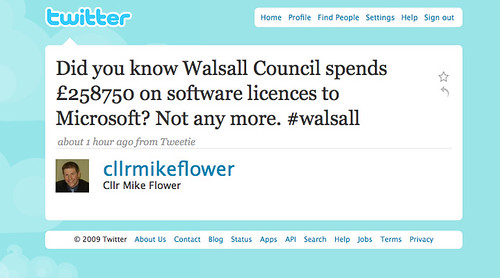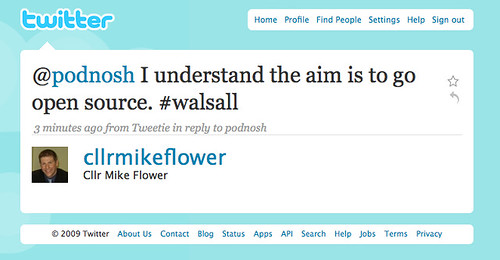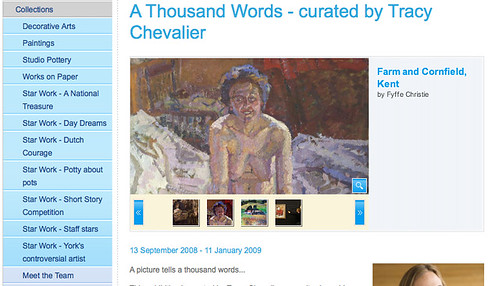Charles Leadbeater on the Digital Britain report. “To succeed, according to Perez’s theory, the government’s plans for broadband would only succeed if they also bring about a massive change in consumer habits and lifestyles, which new businesses can make a profit from. When her theory is boiled down it turns into three questions about the government’s plans set out in Digital
Britain. Will the technology really deliver? Will enough consumers want it and create new demand with it? Can businesses innovate to supply new services that a mass of consumers want which will be profitable?” (hat tip Dave Briggs)
Downing Street Hits a 100,000 Twitter followers: Simon at Puffbox says: “The fact it may not be here tomorrow shouldn’t stop us exploiting it while it’s there. 100,000 people have signed up – actively, voluntarily – to hear from the heart of UK government. Now they’re actually listening, what should we be saying to them?”
OOGL: “Shortly after President Obama’s inauguration, he issued a memo on transparency directing his top officials to develop plans for an Open Government Directive to promote transparency, participation, and collaboration. The Sunlight Foundation has created this page in order to add a public element to the crafting of this Open Government Directive that is itself transparent, participatory, and collaborative”
Jon Hickman asking questions of 4iP (and getting answers) “One might say that the shine has come off, and some people have become critical of what seemed originally to be a good idea. So what has gone wrong?”
A revamp in Prospect.
Potlatch on Play: “I have a new metaphor for the next stage of post-industrial capitalism: the play-ground. Where play happens, but there is also an audience.* So how does our playground society produce economic value? Well, of course it produces value for those at play, who enjoy the scurrying around, socialising and innovating. But how might it produce business value? Most of the time, it will still be via the monitoring, watching, evaluating. What play produces is mostly of little interest to our corporate parents. Except, consider the exception. Parents still retain and cherish the paintings that their small children produce, and stick them up on their walls. Childish play still has its totemic products that are valued and endure. This, then, is the metaphor for user-generated innovation in the eyes of corporations: the innocent, messy artwork produced at playtime, that can be held up as proof that things aren’t all top-down”.
Every Voice Counts West Midlands: “Empowerment is the result of strategic and practical actions – such as engagement, participation and partnership working – that increases the capacity of people to influence the decisions that affect their lives. A National Empowerment Partnership has been created to support and inform the Government in achieving this vision across the English regions.” Umh.


